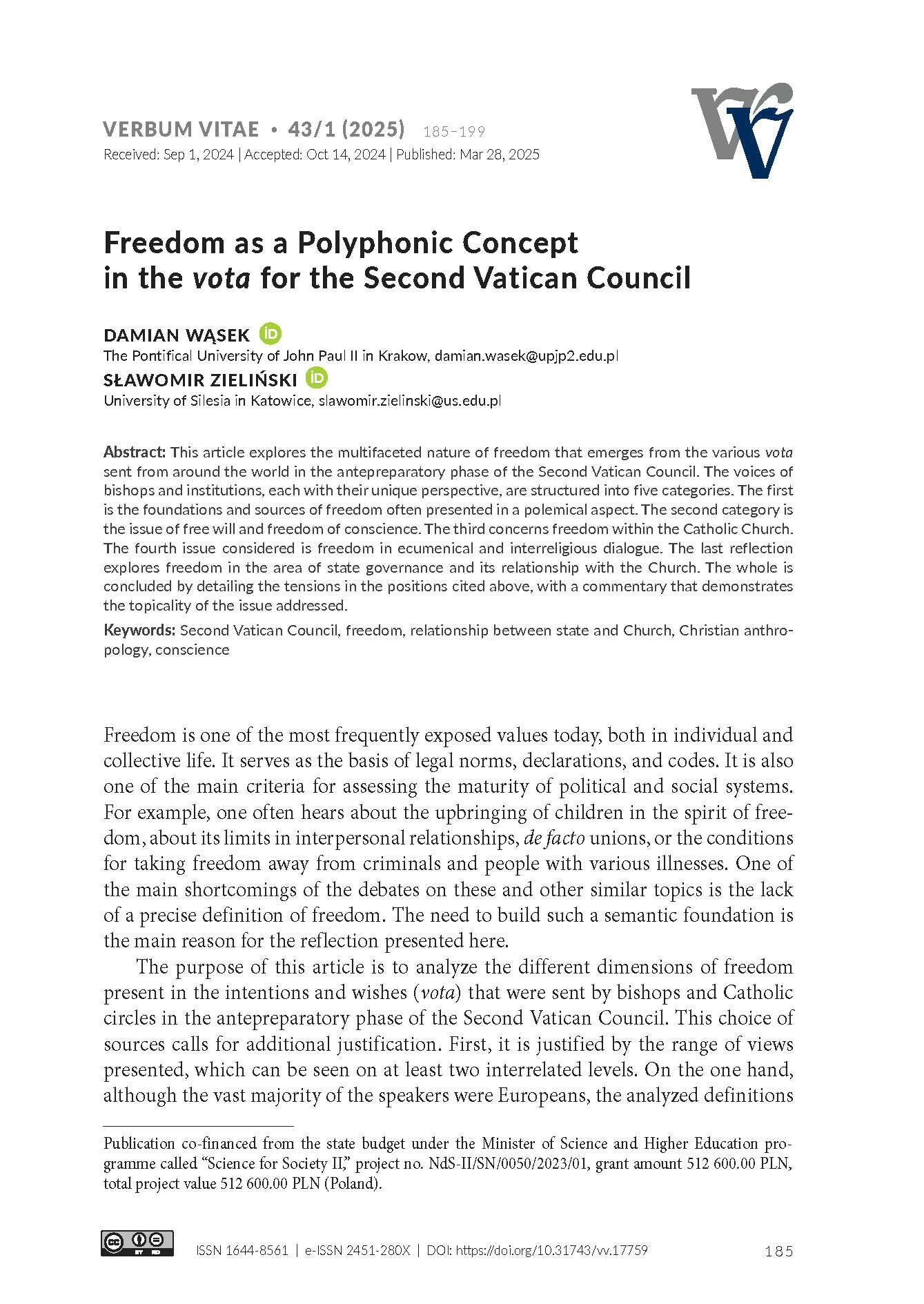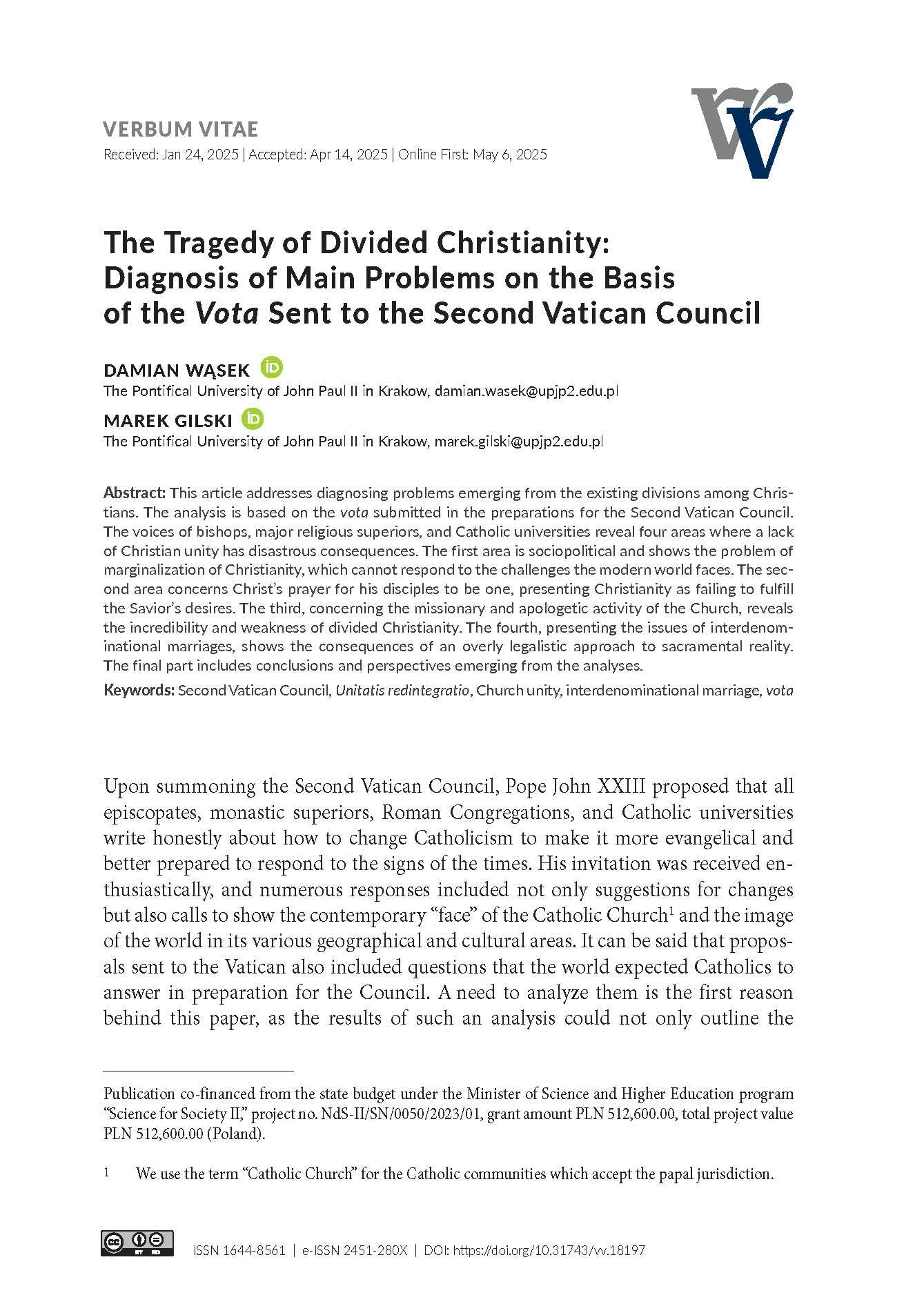The Tragedy of Divided Christianity: Diagnosis of Main Problems on the Basis of the Vota Sent to the Second Vatican Council
Damian Wąsek, Marek Gilski
Verbum Vitae
DOI: https://doi.org/10.31743/vv.18197
Abstract
This article addresses diagnosing problems emerging from the existing divisions among Christians. The analysis is based on the vota submitted in the preparations for the Second Vatican Council. The voices of bishops, major religious superiors, and Catholic universities reveal four areas where a lack of Christian unity has disastrous consequences. The first area is sociopolitical and shows the problem of marginalization of Christianity, which cannot respond to the challenges the modern world faces. The second area concerns Christ’s prayer for his disciples to be one, presenting Christianity as failing to fulfill the Savior’s desires. The third, concerning the missionary and apologetic activity of the Church, reveals the incredibility and weakness of divided Christianity. The fourth, presenting the issues of interdenominational marriages, shows the consequences of an overly legalistic approach to sacramental reality. The final part includes conclusions and perspectives emerging from the analyses.
Keywords:
Second Vatican Council, Unitatis redintegratio, Church unity, interdenominational marriage, vota

Freedom as a Polyphonic Concept in the "vota" for the Second Vatican Council
Damian Wąsek, Sławomir Zieliński
Verbum Vitae, 43(1), 185–199
DOI: https://doi.org/10.31743/vv.17759
Abstract
This article explores the multifaceted nature of freedom that emerges from the various vota sent from around the world in the antepreparatory phase of the Second Vatican Council. The voices of bishops and institutions, each with their unique perspective, are structured into five categories. The first is the foundations and sources of freedom often presented in a polemical aspect. The second category is the issue of free will and freedom of conscience. The third concerns freedom within the Catholic Church. The fourth issue considered is freedom in ecumenical and interreligious dialogue. The last reflection explores freedom in the area of state governance and its relationship with the Church. The whole is concluded by detailing the tensions in the positions cited above, with a commentary that demonstrates the topicality of the issue addressed.
Keywords:
Second Vatican Council, freedom, relationship between state and Church, Christian anthropology, conscience




